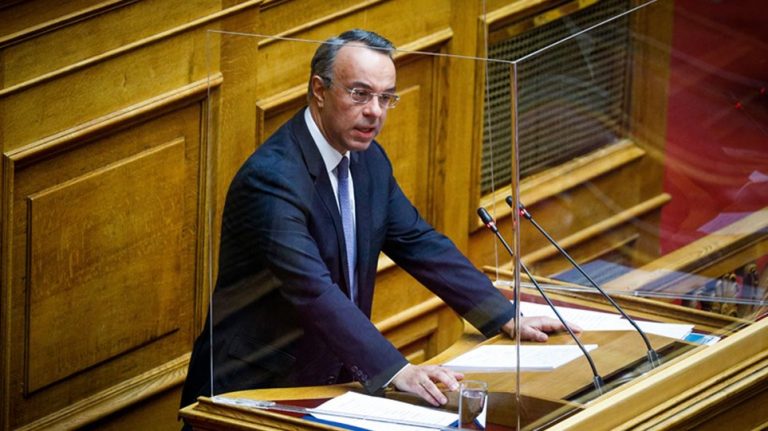“The Greek government is working with a plan, method and flexibility to lead the country out of the health crisis and to enter an orbit of high, sustainable, smart growth without any exclusions, laying the foundations for a future of prosperity, opportunities, and capabilities for the next generations,” Finance Minister Christos Staikouras said on Friday.
Speaking in a Plenary session in Parliament, during a discussion on government plans to exploit EU Recovery Funds, Staikouras noted that no country was prepared to face the turbulence caused by the pandemic crisis and strongly criticised opposition party KINAL for a “lack of responsibility”.
As he explained the state would initiate the new temporary state aid framework to support companies with the coverage of fixed costs, adding the relevant regulation would be submitted to the Parliament next week. He said that the support would be in the form of a grant for fixed costs for non-covered costs, while it would concern companies of sectors that were affected and had failed to cover their fixed expenses or recorded losses due to the pandemic.
Non-recoverable fixed expenses are expenses incurred by businesses during the past year which were not covered by profits or other sources such as the repayable advance.
The finance minister also referred to a National Recovery and Resilience Plan, designed to help in the maximum exploitation of EU funds and to redirect the Greek economy towards a new, modern, open, socially fair model that would boost productivity and structural competitiveness, employment, investments, and social cohesion.
Staikouras stressed that negotiations are underway with the EU to increase the aid ceiling, briefing the MPs that the government has submitted a request to the EU for the provision of additional, unallocated resources of the Sure program.
also read
Where Trust In Government Is Highest and Lowest in the world (infographic)
Ask me anything
Explore related questions





